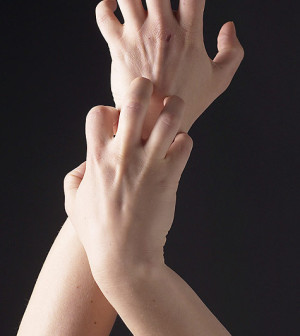- Could Artificial Sweeteners Be Aging the Brain Faster?
- Techniques for Soothing Your Nervous System
- Does the Water in Your House Smell Funny? Here’s Why
- Can a Daily Dose of Apple Cider Vinegar Actually Aid Weight Loss?
- 6 Health Beverages That Can Actually Spike Your Blood Sugar
- Treatment Options for Social Anxiety Disorder
- Understanding the Connection Between Anxiety and Depression
- How Daily Prunes Can Influence Cholesterol and Inflammation
- When to Take B12 for Better Absorption and Energy
- Epsom Salts: Health Benefits and Uses
Dermatologist’s Tips for Reducing Scars After Cuts, Scrapes


During the summer, people tend to get more scrapes, cuts and scratches, which can lead to scars.
But there are a number of things you can do to reduce scarring, according to Dr. Ellen Marmur, an associate clinical professor of dermatology at the Icahn School of Medicine at Mount Sinai Hospital in New York City.
“The appearance of a scar often depends on how well your wound heals. While scars from surgery or over joints like the knees and elbows are hard to avoid, scars caused by minor cuts and scrapes can become less noticeable by properly treating your wound at home,” she said in an American Academy of Dermatology news release.
Marmur offered some tips for reducing the appearance of scars caused by minor skin injuries.
Gently wash the injury site with mild soap and water to remove debris and keep out germs. Apply petroleum jelly to keep the wound from drying out and forming a scab. Wounds with scabs take longer to heal. Petroleum jelly will also prevent a scar from getting too large, deep or itchy. If you clean the wound daily, you don’t need to use antibacterial ointments.
After cleaning the wound and applying petroleum jelly or a similar ointment, cover the wound with an adhesive bandage. Change the bandage daily to keep the wound clean while it heals. For larger scrapes, sores, burns or wounds with persistent redness, hydrogel or silicone gel sheets may be helpful, Marmur said.
If your wound requires stitches, follow your doctor’s advice on caring for the wound and when to have the stitches removed. This may help minimize the scar.
After the wound heals, apply sunscreen (SPF 30 or higher) to the site when you go outside. This may reduce red or brown discoloration and help the scar fade faster, Marmur said.
“Although no scar can be completely eliminated, most scars do fade over time. If you’re worried about the appearance of a scar, see a board-certified dermatologist. A dermatologist can answer your questions and talk about ways to make your scar less visible,” she said.
More information
The U.S. National Library of Medicine has more about scars.
Source: HealthDay
Copyright © 2026 HealthDay. All rights reserved.










